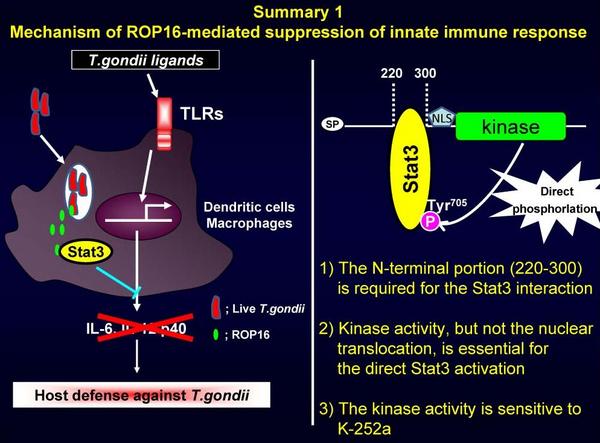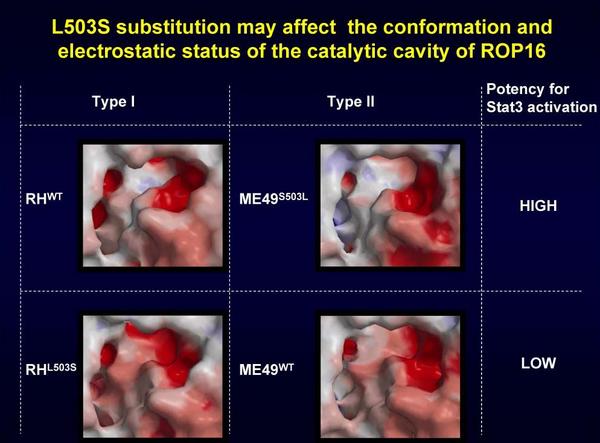News & Topics
A single polymorphic amino acid on Toxoplasma gondii kinase ROP16 determines the direct and strain-specific activation of Stat3. (Assistant Prof. Yamamoto & Prof. Takeda in J. Exp. Med.)
Infection by Toxoplasma gondii down-regulates the host innate immune responses, such as proinflammatory cytokine production, in a Stat3-dependent manner. A forward genetic approach recently demonstrated that the type II strain fails to suppress immune responses because of a potential defect in a highly polymorphic parasite-derived kinase, ROP16.
We generated ROP16-deficient type I parasites by reverse genetics and found a severe defect in parasite-induced Stat3 activation, culminating in enhanced production of interleukin (IL) 6 and IL-12 p40 in the infected macrophages.
Furthermore, overexpression of ROP16 but not ROP18 in mammalian cells resulted in Stat3 phosphorylation and strong activation of Stat3-dependent promoters. In addition, kinase-inactive ROP16 failed to activate Stat3. Comparison of type I and type II ROP16 revealed that a single amino acid substitution in the kinase domain determined the strain difference in terms of Stat3 activation.
Moreover, ROP16 bound Stat3 and directly induced phosphorylation of this transcription factor. These results formally establish an essential and direct requirement of ROP16 in parasite-induced Stat3 activation and the significance of a single amino acid replacement in the function of type II ROP16.


Article
Contact:
Kiyoshi TAKEDALaboratory of Mucosal Immunology
WPI Immunology Frontier Research Center, Osaka University
(Graduate School of Medicine, Osaka University)
2-2 Yamadaoka, Suita, Osaka 565-0871, Japan
ktakeda@ongene.med.osaka-u.ac.jp
